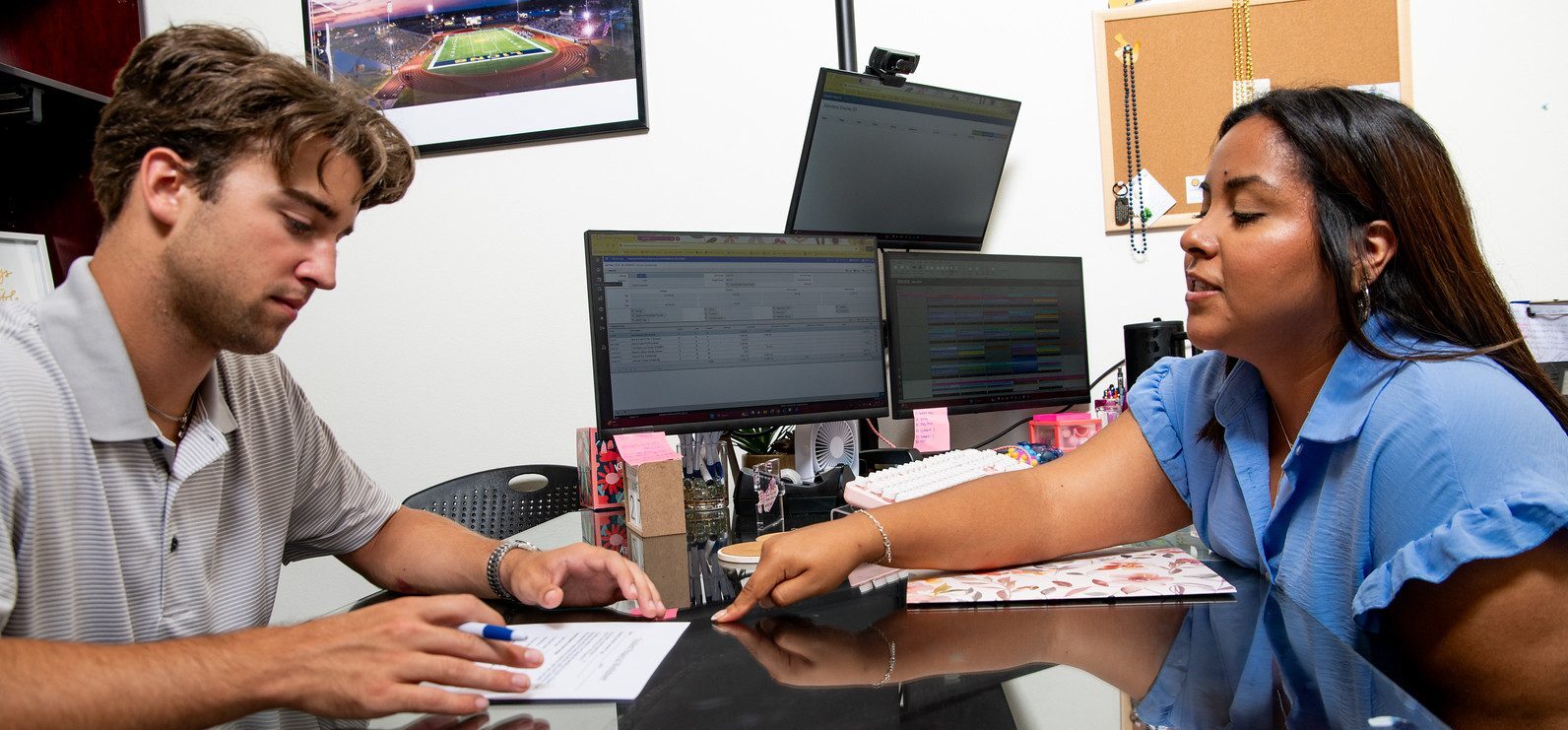
Blue to Gold Money Management Center at A&M-Commerce: Empowering Students Through Financial Literacy
Financial literacy is essential to higher education, and the new Blue to Gold Money Management Center at Texas A&M-Commerce is already making an impact. Opened on May 1, the center aims to help students successfully navigate money matters in college and beyond.
The center, funded partly by a grant from the U.S. Department of Education's Office of Postsecondary Education, is staffed by trained money coaches. It supports students in many ways, from helping them decipher their financial aid packages to teaching them techniques for budgeting money.
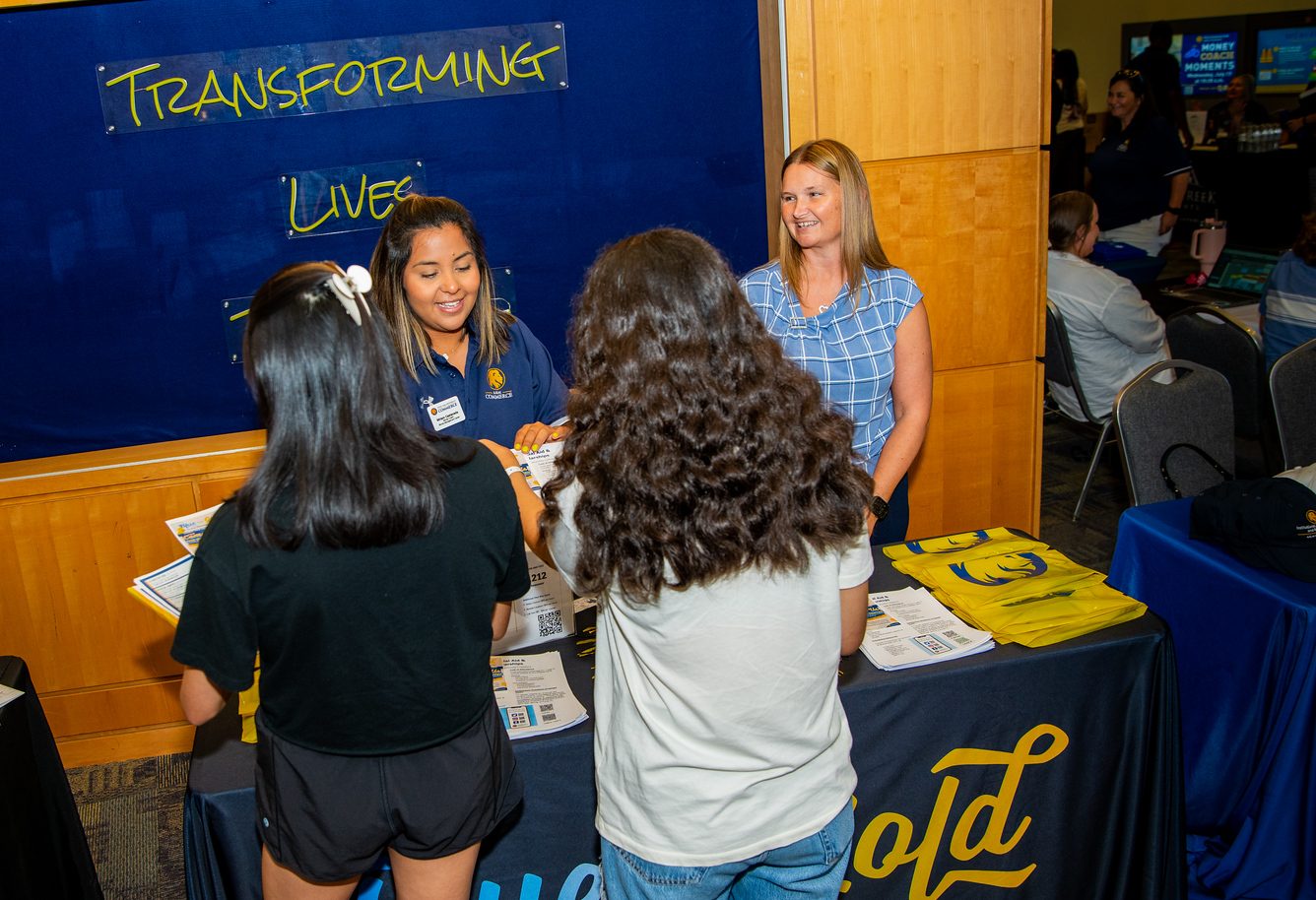
Empowered through financial wellness
Christina Yoakum, assistant director of the Blue to Gold Money Management Center, said money centers are part of an upward trend in higher education, and research reflects they are a much-needed resource.
A 2020 Study on Collegiate Financial Wellness revealed that around one in three students (out of almost 25,000 respondents) considered dropping out of college due to financial concerns. Nearly 75% reported feeling stressed about their finances in general. The study also points out that financial stress is linked to lower academic performance and diminished mental and physical health.
Niki Pettit, also an assistant director of the Blue to Gold Money Management Center, explained that students often feel overwhelmed by large student account balances for tuition, fees, housing and more. Feeling hopeless and confused, many students stop attending college altogether.
“It's easy to give up when you aren't sure what to do or have been restricted from registering for future terms until the past due balance has been paid off,” Pettit said. “We all have a tendency, if something is overwhelming and we don’t understand it, to just kind of freeze.”
The money management center can reduce overwhelm by helping students understand their student account charges and create a plan to pay. The center can also help students understand the impacts of financial aid, learn to use monetary assistance to its greatest advantage, and explore options for reducing debt load.
In addition, the center provides personal finance coaching, teaching students how to plan for income, track expenses and savings, establish an emergency fund, build credit, and read credit reports. Yoakum explained that these skills are transferable from college into life after graduation.
In a nutshell, money coaching can give students a sense of confidence and control as they build financial literacy, empowering them to stay on track through graduation and beyond.
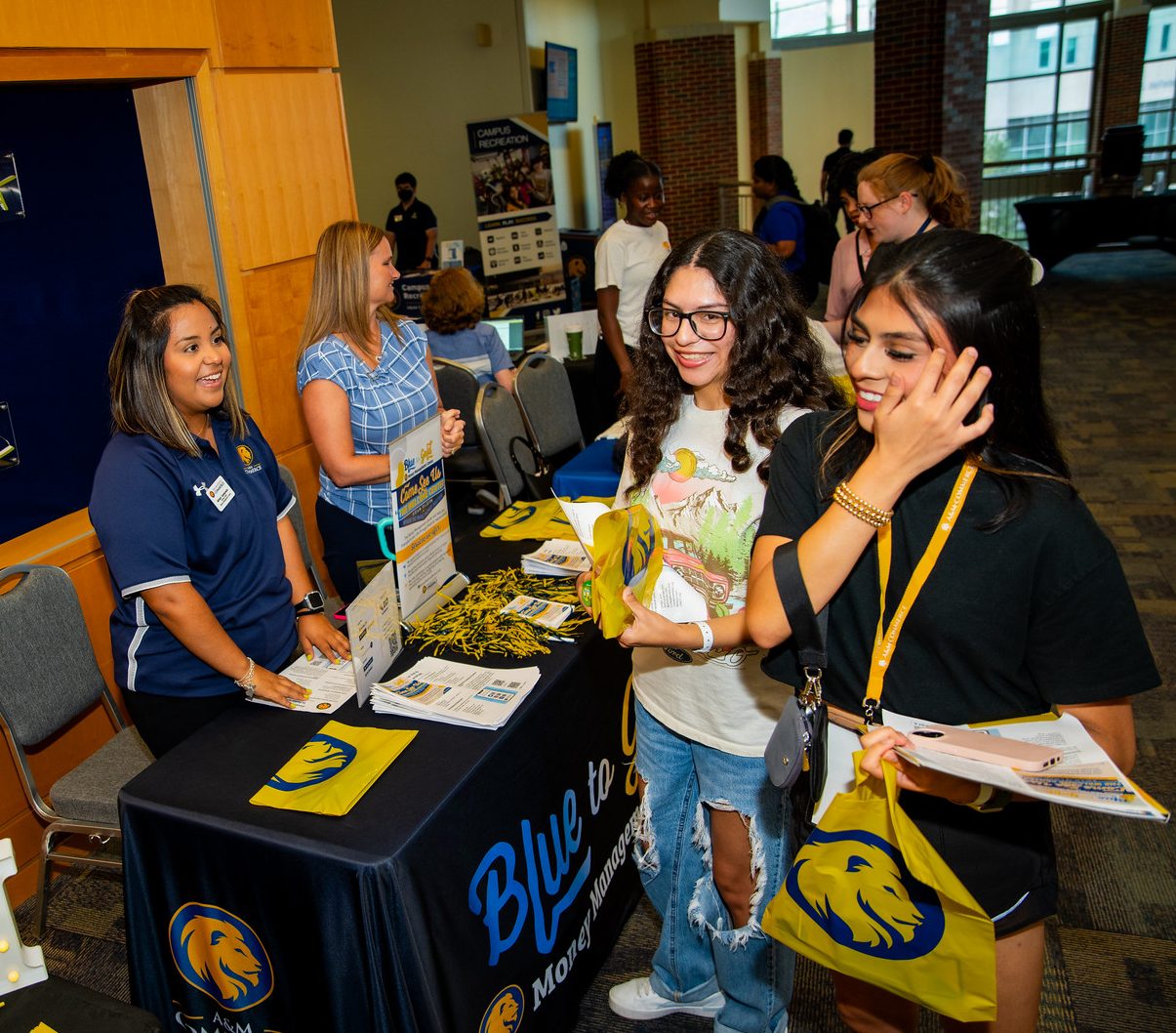
Money coaches provide information to students about the Blue to Gold Money Center. Photo by Tyler Holloway | Texas A&M University-Commerce Marketing and Communications
Making financial literacy accessible
Historically, financial literacy has been out of reach for many students in the U.S. At A&M-Commerce, around 67% of students are first-generation, which means their families may not be familiar with the economic aspects of higher education and, therefore, cannot provide information or support in that area.
“Many students are potentially coming from households that don’t understand the federal aid system and don’t understand higher education, and so students don’t have that knowledge base to make good, informed decisions … ” Pettit said.
The money center brings financial education within easy reach of every A&M-Commerce student, helping them feel confident as they develop an understanding of and sense of control over their college finances. The sessions are free for enrolled students.
A wraparound approach
Uniquely, the money management center at A&M-Commerce is part of a set of wraparound services that provide student support in several areas. When it relocates to the library in August, the center will be next to the Academic Advising Team, Student Transition and Support, and the Office of Student Career Preparedness, providing a complete set of supportive services in one accessible location.
“All of these programs are considered wraparound services that we’re putting together in the same area of the library to create a more holistic approach for our students,” Yoakum said. “The shared space will create a culture of collaboration among key student support units.”
Scheduling a coaching session
Undergraduate and graduate students are invited to schedule coaching sessions at tamuc.edu/Blue-to-Gold-Money-Management-Center. Face-to-face, phone and Zoom options are available.
During the 30-minute appointment, a trained money coach will assist the student with money-related questions or concerns in a confidential, one-on-one session. Students are encouraged to schedule a session, even if they don't know what they need help with or what to ask.
Expanding financial literacy at TAMUC
Both Pettit and Yoakum are excited about the future of the Blue to Gold Money Management Center and have plans for future expansion. For one, they plan to invite financial experts to campus for student-centered presentations on various money-related topics. They also plan to introduce a peer mentorship program where certified student mentors provide supplemental support.
The center promises to enrich students' lives, empowering them to take control of their financial futures and equipping them for their college years and life beyond graduation. As financial literacy grows at A&M-Commerce, the university will foster a new generation of financially savvy and confident Lions.
Featured Photo: A Money Center coach assists a student during a session. Photo by Tyler Holloway | Texas A&M University-Commerce Office of Marketing and Communications
More Campus and Community News
View All Campus and Community News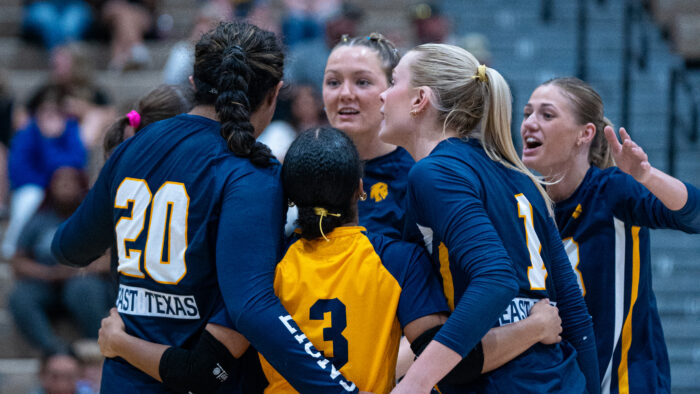
Lion Volleyball Announces 2025 Conference Schedule, to Host SLC Tournament on Nov. 21-23
The East Texas A&M University volleyball program released its 2025 Southland Conference schedule, which includes hosting the SLC Volleyball Tournament in Commerce at the end of the season.
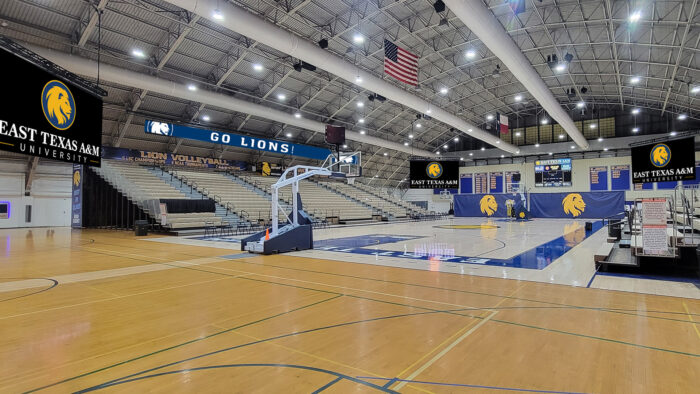
East Texas A&M Installs State-of-the-Art Video Boards in the Field House
East Texas A&M University enhanced the in-venue experience inside the Hunt Regional Healthcare Court in the Field House this spring by installing four videoboards and two ribbon boards.
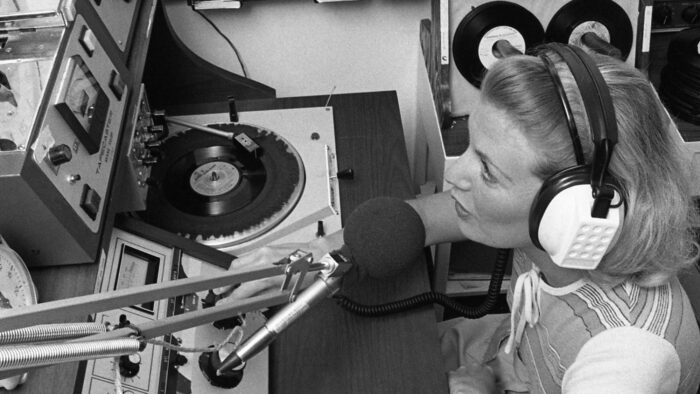
KETR Celebrates 50 Years of Service to Northeast Texas
88.9 KETR is celebrating a major milestone this week: 50 years on the air. The National Public Radio (NPR) station went live on April 7, 1975, broadcasting from the Journalism Building at East Texas A&M University.


